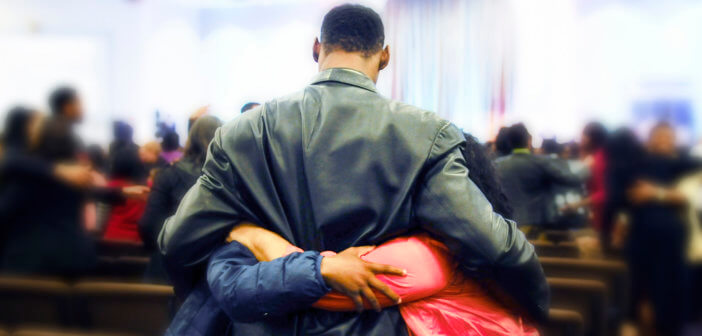Who led members of Mother Emanuel AME Church in their astonishing acts of forgiveness? Lovett H. Weems, Jr., says the spiritual, moral, and pastoral leadership in the months after this tragedy came from faithful Christians who held no formal church leadership roles, yet embodied the cumulative witness of all the church preaches.
On June 18, 2015, as soon as I saw the television images of Mother Emanuel African Methodist Episcopal Church in Charleston on the early news, my heart sank. The caption below said nine people had been killed and soon there appeared the picture of the church’s pastor, my friend and student, the Reverend Clementa Pinckney, one of the victims. This cannot be happening! People gunned down at a Wednesday night prayer meeting and Bible study, a weekly tradition across the South and elsewhere for generations now carried on by churches such as Emanuel. But it was true. And it was more than a mass shooting. It was a deliberate killing of a group of church members during a Wednesday night Bible study for only one reason: their race.
This was not their first Bible study.
Yet, in the midst of their unspeakable sadness and loss, some of the families of the victims surprised the world by extending forgiveness to the killer. In our increasingly secular society, many people were astonished and shocked. They couldn’t figure out what was going on because these basic Christian sentiments were to them an unknown language. But those steeped in the spiritual tradition of Mother Emanuel and similar churches understood. As David McAllister-Wilson, president of Wesley Seminary, put it, “This was not their first Bible study.” They had been shaped by a theological tradition even stronger than death.
Who were the leaders?
I recently read Pulitzer Prize winning journalist Jennifer Berry Hawes’s new book on the Charleston church massacre, Grace Will Lead Us Home: The Charleston Church Massacre and the Hard, Inspiring Journey to Forgiveness (St. Martin’s Press, 2019). What struck me most in this account was that the spiritual, moral, and pastoral leadership in the months after this tragedy came from faithful Christian witnesses with no formal church leadership roles. They not only cared for one another as victims sharing a common grief, but they also witnessed to a faith that had been shaped by a long line of spiritual giants from Denmark Vesey, a former slave and founder of Emanuel who was executed for planning a slave rebellion, to Clementa Pinckney who died with eight of his flock. The message of the faith they proclaimed in the end was far more powerful than any individual leader and provided all that was needed during those trying days.
The Church is history’s one great preacher.
As I was reading Grace Will Lead Us Home, I was at the same time reading P.T. Forsyth’s Positive Preaching and Modern Mind: The Lyman Beecher Lecture on Preaching, Yale University, 1907. Taken together, these two books forged a powerful connection in my mind. In his lectures, P.T. Forsyth said, “The one great preacher in history, I would contend, is the Church. And the first business of the individual preacher is to enable the Church to preach.” That’s what happened in Charleston. The words of formal leaders counted for little compared to the powerful preaching of the Church represented by those who had paid attention and were moved to make manifest the Gospel they sought to live.
Related Resources
- Leadership Lived: Clementa Pinckney and Open Doors by Lovett H. Weems, Jr.
- Ten Ways to Build the Beloved Community by Tony Hunt
- 3 Leadership Principles from Archbishop Tutu by Doug Powe






